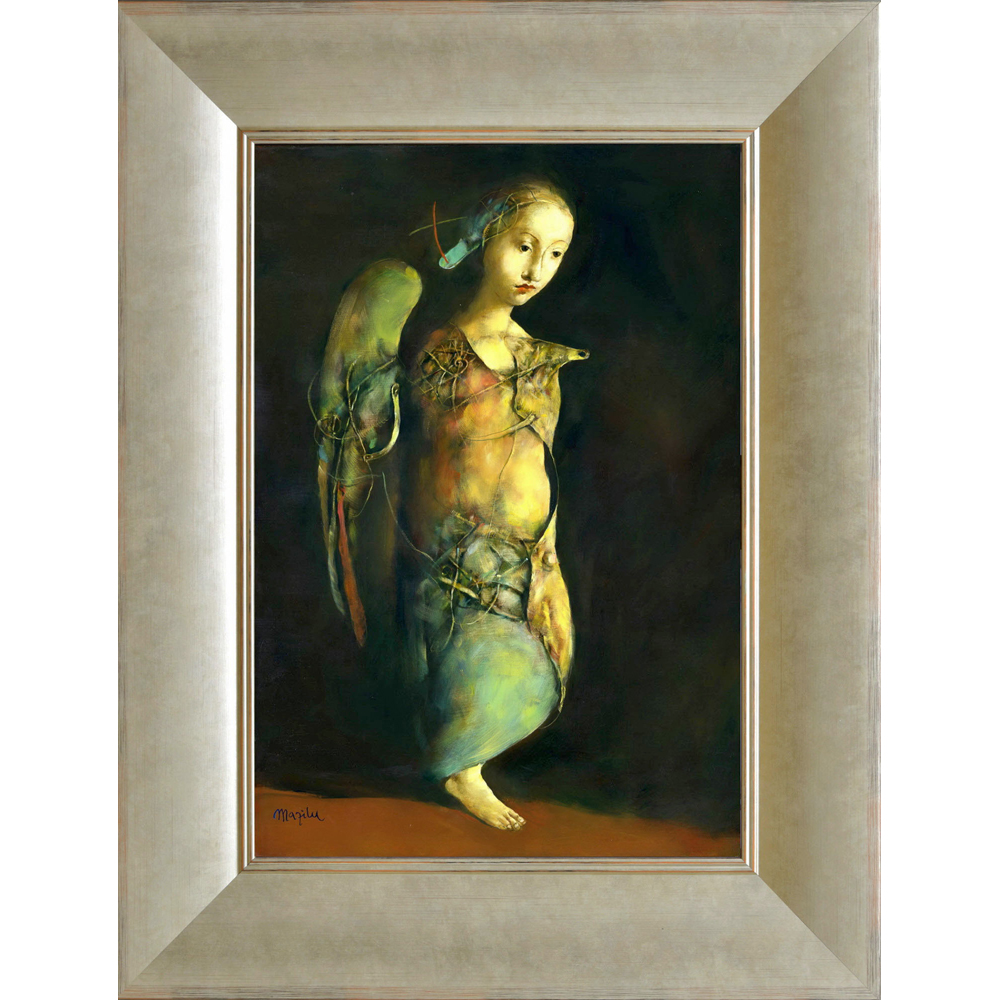Artwork Description
Georges Mazilu – Ange debout
Dimensions: 23 x 29.5″ framed / 21.6 x 15″ unframed
Year: 2019
Medium: acrylic on canvas
Today, seemingly more so than ever, we are witnessing the many faces history can bare. Truth no longer exists in a concrete manner as it once did. A veil of uncertainty cloaks fact- whether it be as personal as our memories or as collective as the global socio-political landscape.
In a mysteriously beautiful marriage of Northern Renaissance style painting and haunting surrealism, Georges Mazilu explores and reconciles with this past in faces- deconstructing how his Romanian childhood alongside the controversial “cultural colonization” of the Western Art world in Eastern Europe has influenced his unique and curious aesthetic and subject matter. Transcending time and circumstance, his practice provides a model for approaching the past in a way that constructs new futures. It’s something to learn and derive inspiration from, especially as change continues.
Battle, that is both enchantingly stylistic and intensely contemplative, can be witnessed in Mazilu’s paintings: an interesting controversy between the capacity to speak to the navigation of his Soviet upbringing, his voice as an artist, and the nuances of art itself as a therapeutic practice. Mazilu uses his skill to make sense of the world around him- the human forms that emerge from the abstract, organic sketch strokes morph from ambiguous base shapes into recognizable figures in a stunning amalgamation of his skill as a classically-trained painter and his vision as an ambitiously contemporary creator.
The enigma of his work invites deeper audience contemplation. His paintings are both a bewitching puzzle and interactive conversation. How has globalization influenced the fusion of artistic movements? Can something that appears to be so traditional actually be working to redefine modern art?
Turner Carroll is Mazilu’s sole United States gallery representative, and it is our great privilege to present the delightfully idiosyncratic new work of Georges Mazilu. Madonnas, Angels and Candles represents the continued relevance of Mazilu’s career. Bringing a refreshed, culturally and historically significant reflection of the world in which he was raised, Madonnas. Angels and Candles conveys the human intrigue that lies in juxtaposition: tradition and modernity, past and present, the light and darkness of the world. Mazilu’s work is an ode to unity that can come from dissimilarity, how complementary elements can come from surprising collaborations, and how our histories, good or bad, pleasant or plightful, sculpt the people we become and the beauty we create in perseverance.
By: Morgan Bakinowski

